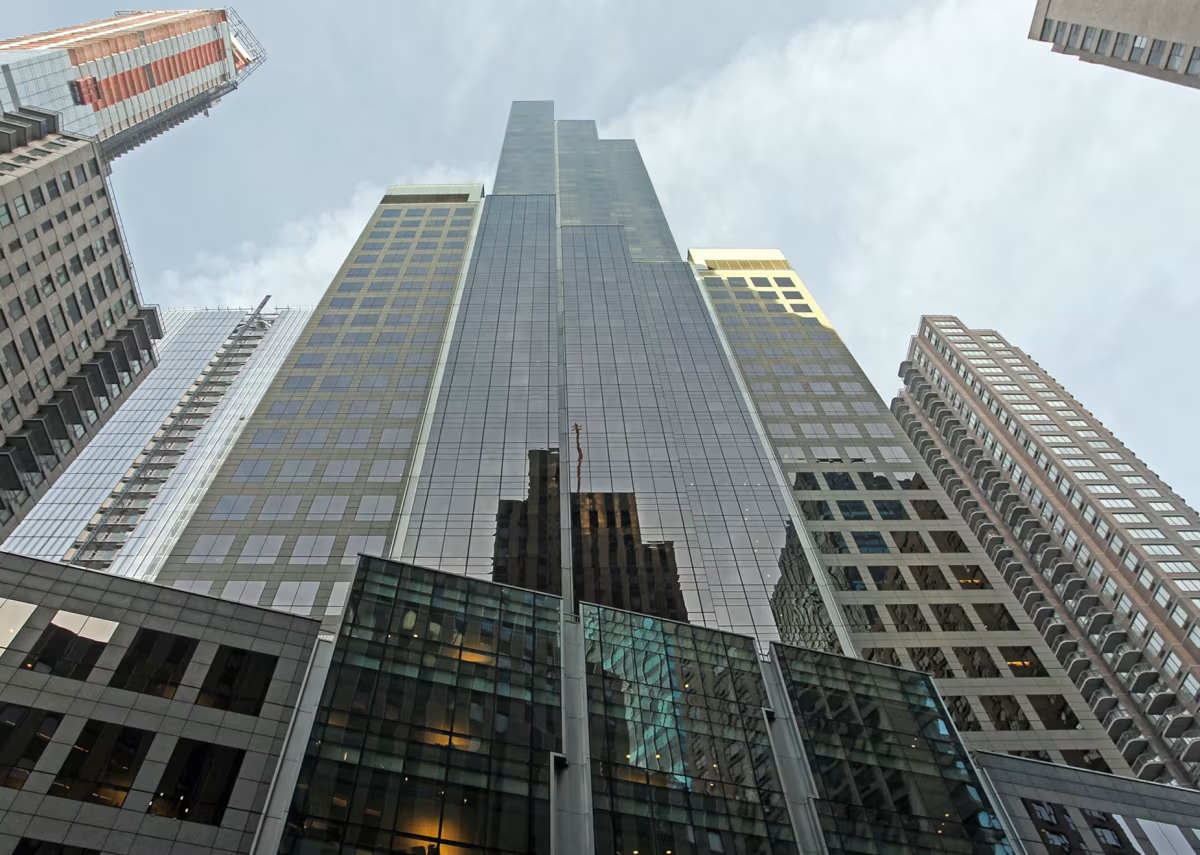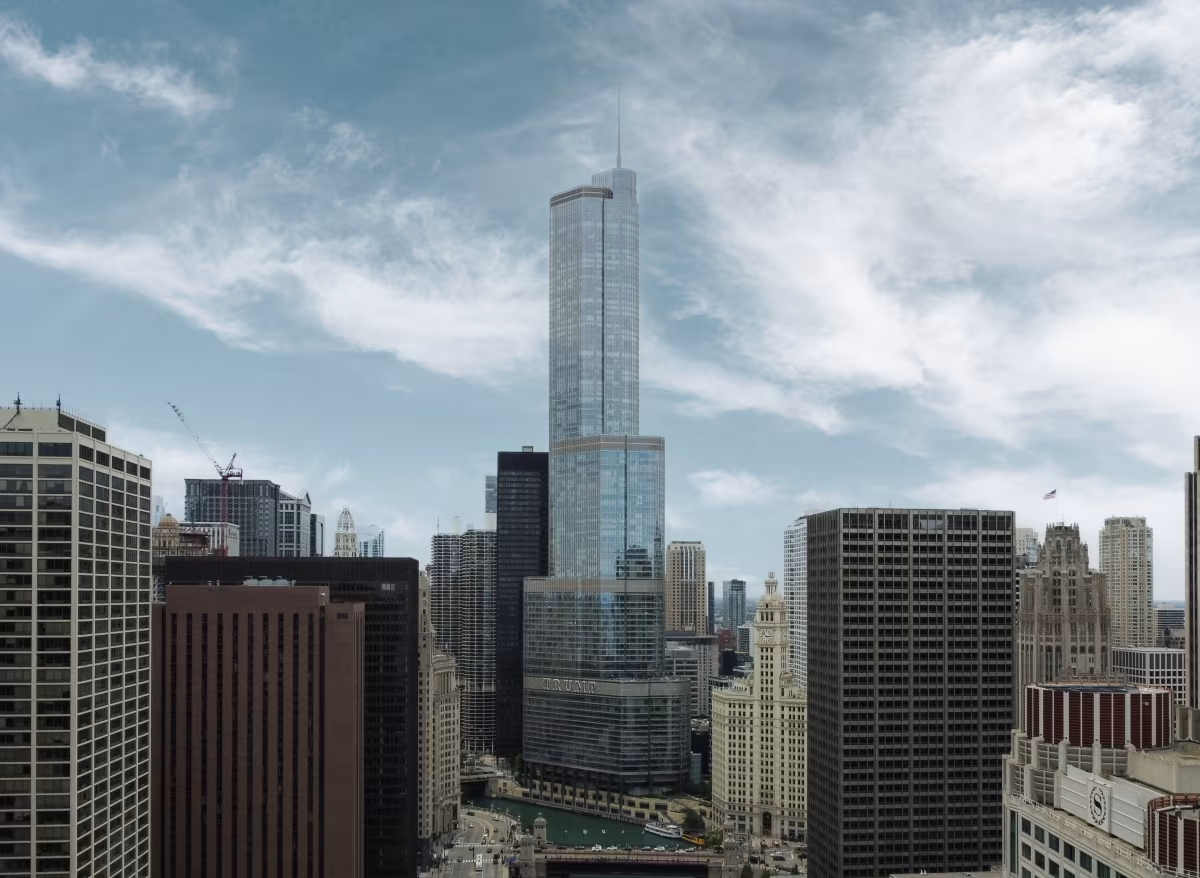Random House Tower vs Trump International Hotel and Tower


Comparing the Random House Tower and the Trump International Hotel and Tower is compelling because they were both designed by Skidmore, Owings & Merrill, yet they stand in different cities (New York, NY and Chicago, IL), and were completed more than 6 years apart.
What this will allow us to see, is how the same firm's approach adapted to different places at roughly the same time (6 years isn't that much time when it comes to urban context and architecture).
Height & Size
The Trump International Hotel and Tower is clearly the larger tower of the two, both in terms of height and number of floors. It rises to 1181ft (360m) with 92 floors above ground, while the Random House Tower reaches 682ft (208m) with 52 floors above ground.
Of course, each project may have faced different briefs or regulatory constraints, which we don't really know about and could also explain the outcome.
Architectural Style
Both the Random House Tower and the Trump International Hotel and Tower were designed in line with the aesthetic conventions of the Contemporary style.
At the time, this style was at the height of its popularity. So Skidmore, Owings & Merrill followed what was in many ways expected at the time, producing designs that fit comfortably within contemporary architectural norms rather, than breaking with convention.
Uses
Both towers follow a mixed-use program. The Random House Tower combines commercial and residential, while the Trump International Hotel and Tower integrates hotel, residential and commercial. Notably, both include commercial and residential as part of their program.
The Trump International Hotel and Tower incorporates a 5-star hotel with 339 rooms. More information is available at the official website.
In terms of capacity, the Random House Tower offers 101 apartments, while the Trump International Hotel and Tower provides 486 units.
Both towers provide significant parking capacity, with Random House Tower offering 150 spaces and the Trump International Hotel and Tower offering 960.
Structure & Facade
Both the Random House Tower and the Trump International Hotel and Tower rely on a Frame structural system.
A frame structure uses a grid of columns and beams to carry the building's loads. This frees the walls from structural duties, allowing for flexible floor plans and larger windows.
They also employ the same type of facade, a Curtain Wall facade.
A curtain wall is a non-load-bearing facade hung from the structural frame. It is anchored to floor slabs and transfers only its own weight and wind loads, allowing for sleek, glassy exteriors.
| Random House Tower | Trump International Hotel and Tower | |
|---|---|---|
| Skidmore, Owings & Merrill | Architect | Skidmore, Owings & Merrill |
| 2000 | Construction Started | 2005 |
| 2003 | Year Completed | 2009 |
| Contemporary | Architectural Style | Contemporary |
| Mixed | Current Use | Mixed |
| 52 | Floors Above Ground | 92 |
| 2 | Floors Below Ground | 5 |
| 193 | Last Floor Height | 357 |
| 208 m | Height (m) | 360 m |
| 101 | Residential Units | 486 |
| Frame | Structure Type | Frame |
| Steel And Reinforced Concrete | Vertical Structure Material | Reinforced Concrete |
| Reinforced Concrete | Horizontal Structure Material | Reinforced Concrete |
| No | Facade Structural? | No |
| Glass, Steel, Aluminum | Main Facade Material | Glass And Stainless Steel Panels |
| Plaza Construction Corporation | Main Contractor | Bovis Lend Lease |
| Steve Ross | Developer | Donald Trump |
| Thornton Tomasetti | Structural Engineer | William F. Baker |
| HLW International | Interior Designer | PMG Arquitectos |
| NY | State | IL |
| New York | City | Chicago |
| 1739 Broadway | Address | 401 N. Wabash Ave. |